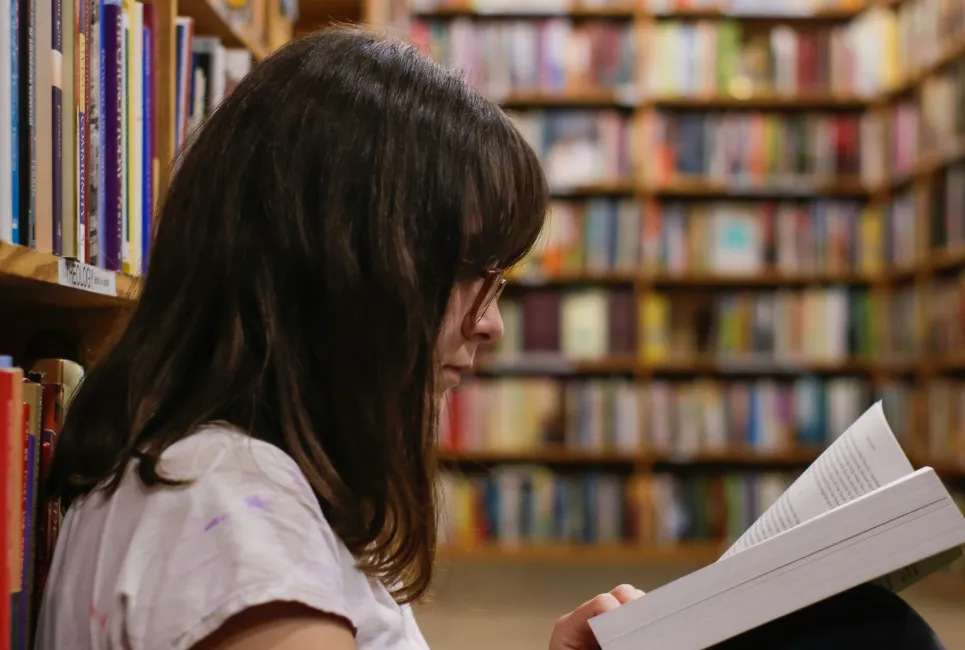Theory of Knowledge (TOK) is an essential part of the International Baccalaureate (IB) Diploma Programme. It gives students a profound opportunity to think about the knowledge they possess and the ways in which we come to understand our world.
TOK is a mandatory segment within the DP core, so if you’re doing the IB, you’ll need to know about Theory of Knowledge. However, it’s best to think of it not just as an academic exercise, but also a journey that challenges students to reflect on the very nature of knowledge.
At the heart of TOK lies a philosophical inquiry into the conditions, principles, and nature of authentic knowledge. Learners are prompted to delve into the fundamental questions surrounding the reliability of knowledge, which means they gain key critical thinking skills along the way.
Here’s everything you need to know about Theory of Knowledge.
History and Development of Theory of Knowledge
In the 20th Century, the IB sought to establish a comprehensive educational model. It launched the TOK course as a part of this initiative, showing that the IB was all about nurturing intellectual curiosity.
Initially, the TOK was a bridge between several academic disciplines. It was a way to go beyond understanding individual subjects and start to form connections between them, cultivating well-rounded learners with a holistic perspective. To do this, TOK encouraged students to question and explore diverse perspectives on knowledge.
The early days of TOK emphasised philosophical exploration, delving into the nature of knowledge. Here, students could share their views on a range of knowledge-related topics. Teachers had flexibility in choosing their methodology and materials, emphasising a balanced approach to knowledge that triumphs over ‘right’ and ‘wrong’ ideas.
Over time, the course evolved within the IB curriculum. Now, the scope has expanded to include a more diverse range of knowledge areas, including the sciences, humanities, and arts. The evolution highlights the changing educational landscape, but it also shows how different forms of knowledge can be interconnected.
Initially, students had to complete an essay and a presentation. Starting in 2022, the presentation was replaced with an exhibition instead.
Teaching methodologies have also evolved. Educators now focus on facilitating conversations rather than teaching, guiding students through complex and abstract subjects. The shift aligns with a broader vision of education, centred on cultivating critical thinking and inquiry rather than just the transmission of information.
Now, the IB continues to adapt to the evolving needs of education, still shaping the way IB students understand their world.
Theory of Knowledge Benefits

Taking the TOK assessment provides a range of benefits for students. Here are ten of the main benefits.
- Develops self-aware thinkers: The primary goal of TOK is to cultivate self-awareness among students, fostering an understanding of the interpretive nature of knowledge and the presence of ideological biases.
- Encourages responsible action: TOK aims to instil a sense of responsibility in students, acknowledging the challenges of an interconnected yet uncertain world.
- Critical reflection: TOK offers students and educators a platform to critically reflect on diverse ways of knowing and various areas of knowledge. It prompts an examination of the nature of knowledge within one’s own culture, other cultures, and the broader global context.
- Connects subject areas: TOK provides a way for students to transcend academic subject areas and link their knowledge together. It demonstrates how knowledge can be applied with greater awareness.
- Motivates exploration: By prompting students to understand themselves as thinkers, TOK motivates intellectual exploration. This self-awareness allows students to navigate the complex nature of knowledge.
- Contribution to contemporary epistemology: In the pursuit of knowledge, TOK acknowledges the contributions of modern philosophers in an uncertain world. Students come to understand the changing world, and may develop a desire to contribute to it.
- Exploration of different ways of knowing: Students can explore different ways of knowing and consider knowledge questions carefully. TOK encourages critical reflection on approaches and methods of gaining knowledge.
- Develops IB Learner Profile attributes: Students can further their progress in the IB while developing Learner Profile attributes like open-mindedness, critical thinking, and inquiry around beliefs and opinions.
- Reflecting on life with awareness: Through TOK, students learn to reflect on life situations with awareness, recognising when assumptions and biases influences their understanding of what they think they know.
- Develops academic skills: TOK involves the development of academic skills through formal essay writing, presenting, and more.
In essence, the holistic approach enriches the student’s academic experience and equips them with useful skills for later studies and the world of work.
Key Concepts and Terminology
Getting to grips with TOK requires understanding the terminology. Before you dive in, you’ll need to understand the following:
- Knowledge claims: Statements asserting the existence or truth of certain information. TOK challenges students to question the sources and validation of these claims.
- Ways of knowing: There are four primary avenues through which people perceive and comprehend the world:
- Perception: Gaining knowledge through sensory experiences.
- Emotion: Acknowledging the role of feelings and sentiments in shaping understanding.
- Reason: Employing logical thinking and rational analysis.
- Language: Communicating and interpreting knowledge through linguistic expressions.
- Areas of knowledge: Diverse fields of study such as sciences, humanities, and arts. TOK encourages interdisciplinary exploration, recognising the interconnectedness of knowledge.
- Epistemic justification: The understanding of how beliefs are justified, ranging from intuitive knowledge to justified belief based on logic or empirical evidence. TOK prompts reflection on the quality of these justifications instead of a binary notion of right or wrong.
Teaching or studying TOK requires an understanding of all of these concepts. Historically, they stem from philosophers such as Plato, who defined the stages of knowledge development, and Socrates, who equated knowledge with virtue.
Throughout the TOK, students are encouraged to interact with these historical theories and use them to inform critical thinking skills that apply to the modern world.
Join the Immerse Education 2024 Essay Competition
The Immerse Essay Competition is open for 2024! Follow the instructions to write and submit your best essay for a chance to be awarded a 100% scholarship.

Theory of Knowledge Framework and Assessment

There are two ways that TOK is assessed. This includes the exhibition, which accounts for 33% of the grade and is marked internally, and the essay, which accounts for 67% and is marked externally. Both sections have ten marks available.
The exhibition challenges students to create a tangible representation of TOK concepts. They must provide a virtual or live exhibition of three objects based on a prompt. The IB provides a list of prompts to choose from – you must choose one and not create your own. There are 35 prompts, including:
- What counts as knowledge?
- Are some types of knowledge more useful than others?
- What counts as good evidence for a claim?
Alongside the exhibition, the student must create a document of 950 words with images of the three objects and a commentary on each, linked to the prompt.
Students are assessed on their ability to clearly identify and choose objects and explain their real-world context. They should be able to justify their choices and support their points with appropriate evidence, all while linking it back to the prompt.
Meanwhile, the essay is worth more marks. Students are given a set of essay titles to choose from, all related to the Areas of Knowledge:
- The Arts
- History
- Human Sciences
- Natural Sciences
- Mathematics
The TOK essay should be reflective and analytical, as is the nature of the subject.
TOK Essay and Exhibition
Tackling the essay and exhibition requires some careful thought. Here are some tips for each.
Essay
For the essay, students are given a set of questions to choose from. It’s important to choose a title carefully, opting for one that sparks intricate, creative ideas rather than the simplest one. While preparing for the essay, prioritize clarity and relevance.
Next, designate two Areas of Knowledge (AOKs) to explore your chosen title. This includes natural sciences, mathematics, and so on. Organise the essay into two sections, each presenting a claim and a counterclaim to form a nuanced discussion. Think of the essay as a dialogue, with evidence supporting both sides.
Examiners are looking for a coherent and critical exploration of the essay title. Students should emphasise the reflection on knowledge over extensive subject descriptions. It’s important to ensure your argument flows logically.
The icing on the cake lies in considering the implications of your claims. Always make sure to link back to the central question, analysing various perspectives to enrich the essay. Students should consider the broader implications of their arguments for knowledge in their chosen AOKs.
The essay is usually 1600 words. The ideal way to structure is is:
- Introduction: 200-250 words
- Argument one: 500-600 words
- Argument two: 500-600 words
- Conclusion: 200-250 words
Exhibition
The exhibition is a newer part of the TOK assessment. Students are given a range of prompts to choose from. After selecting one, they must choose three objects that align with the selected prompt, then explain how.
Usually, the exhibition takes place in the first year of TOK teaching. It’s a fun way to connect the things learned in class with the real world. Students can choose from a range of objects, including both physical and digital items. This can be a piece of artwork, a tweet from a relevant figure, a novel, or a photograph. Really, students can use anything.
The exhibition showcase is not a formal part of the assessment, but most TOK students perform either a physical or virtual showcase. There may be combined IB events with other schools.
The assessment itself comes from the document. Students must create a single document with a word count of 950 words, including images of the objects and typed commentaries for each. The commentary should describe the object, explain its real-world context, justify its inclusion in the exhibition, and establish links to the prompt.
The Role of TOK in Critical Thinking
TOK plays a pivotal role in nurturing critical thinking skills, challenging students to question their assumptions and scrutinise knowledge claims. Through its inquiry-based approach, TOK prompts students to analyse the validity and reliability of information, fostering a habit of skepticism.
By exploring diverse perspective, students can develop the ability to think critically about complex issues. This is a huge benefit during university studies. However, it’s also helpful for the real world, helping students to evaluate evidence, consider alternative viewpoints, and recognise the limitations of knowledge. As a result, they can engage thoughtfully with the world around them
Theory of Knowledge Real-World Applications
Studying TOK can sometimes feel philosophical and disconnected from the real world. However, despite being highly academic and intellectual, this course has some real-world applications.
Consider the following.
| Example | TOK Principle | Application |
| Medical ethics | Ethical implications of knowledge production | When considering the ethical implications of a new medical procedure, healthcare professionals must reflect on cultural perspectives, patient biases, and the impact of technological advancements on patient wellbeing. |
| Environmental policy | Interconnectedness of Knowledge Areas | Policymakers can draw on TOK thinking to understand the interplay between scientific knowledge, economic considerations, and cultural attitudes toward nature. |
| Media literacy | Influence of language on perception | Analysing news articles or social media posts through a TOK lens helps individuals to understand the influence of language, bias, and cultural context. |
| Global diplomacy | Cultural perspectives in knowledge production | International diplomats benefit from TOK by recognising diverse cultural perspectives and understanding how knowledge is shaped by historical contexts. |
| Technological innovation | Implications of knowledge application | Technology developers must assess the ethical and social consequences of their innovations, ensuring responsible application and considering potential cultural impacts. |
| Law | Role of language in knowledge interpretation | Legal professionals applying TOK consider how language nuances, cultural contexts, and historical influences shape the interpretation and application of the law. |
| Education | Recognising bias in knowledge transmission | In educational settings, teachers can question traditional educational methods to explore more diverse perspectives and consider what knowledge they pass on and how. |
Gain Critical Thinking, Research and Writing Skills with Immerse
The Theory of Knowledge is an amazing opportunity for IB students to go beyond traditional academic subjects and understand more about the knowledge they possess.
Looking to enhance your critical thinking, research or writing skills to help support your theory of knowledge, discover our Online Research Programme with Immerse Education today.
















